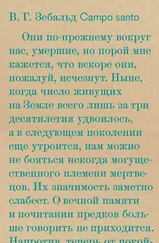To Kaspar, the anonymous voices of the media to which he is constantly exposed mean “alienation in the sense of a passive submission to invasion by others.” 10Something in him cracks; he becomes vulnerable and begins to learn. At first Kaspar’s reactions to the refractory nature of the inanimate objects around him and his own incompetence as a human being are those of a clown. His hands get stuck down the side of the sofa, the table drawer falls out at his feet, he becomes entangled in a chair, a rocking chair tips over and Kaspar runs away, terrified, for every new lesson is a new horror to him. A clown merely performs an amusing act in the “tension between the serious mastery of objects that has been learned and his own deliberate clumsiness,” but to the uneducated Kaspar such acts cannot be foreseen and relate not so much to the mastery of inanimate objects as to his own training. 11Handke has written, of the circus, that the audience’s enthusiasm is never really free “because the imminence of shame or horror is always present”; something could easily go wrong with the act. 12“With a clown, however, the misfortune that is so embarrassing in all other circus numbers is planned as part of the act.… His accidents are not awkward but comic. Indeed, it is an embarrassing sight if he does for once, unintentionally, succeed in mastering inanimate objects. The sight of a clown who fails to fall over a stool or who can sit down easily in an armchair … is embarrassing.” 13Kaspar’s clumsiness, however, is far from intentional, and the accidents he suffers are only very superficially comic. He soon learns to avoid them. But he has still assimilated enough clownish behavior for us to be almost embarrassed by his correct reactions as the action continues. What looks like progress is really nothing but the gradual humiliation of a trained creature who, in approaching the human average, begins to resemble an animal gone mad. Kaspar’s éducation sentimentale is also his case history, and from it we finally gain insight into the pathological connection which inevitably exists between the possession of property and education. For do not things have names only to help us to grasp them better, as if the blank spaces in the atlas we have made for ourselves out of reality disappear only so that the colonial empire of the mind may grow? “As a child,” Henny Porten remembers during Ritt über den Bodensee (“The Ride Across Lake Constance”), “if I wanted something, I always had to say what it was called first.” 14Kaspar soon realizes that this is where the secret of mastering things lies; he becomes eager for information so that he will gain a little more power. Musil’s claim that knowledge is related to greed and represents a despicable urge to hoard, as “the fundamental and favorite expression of capitalism,” could be the critique of a development such as Kaspar’s once he understands the point of learning. 15It is not that he makes a conscious choice between naïveté and enlightenment, but the strange words that he uses in order to master strange things force themselves on him like commands and latent threats against which he cannot defend himself. Nor does he yet recognize the voices of society as something different, something outside him; instead, they echo within him as the part of himself that became strange to him when he was cast up in this new, overbright environment. Social maxims and reflections overwhelm him as compulsively as if they were his own individual delusion. Consequently, he obeys them.
The merciless education of Kaspar obeys the laws of language. The reason why the play could be described, says Handke, as “speech torture” is not just that other people talk to Kaspar until he loses what might be called his sound animal reason. More precisely, in this learning process, speech itself features as an arsenal containing a cruel set of instruments. Kaspar’s very first sentence helps him, as the prompters explain, “learn to divide time into time before and time after uttering of the sentence.” 16Tension arises, and with it a foretaste of the torture. Kaspar learns to hesitate as he speaks, and the voices show him how that hesitation can make painful incisions where they do not belong, separating the parts of a sentence: “The sentence doesn’t hurt you yet, not one word. Does hurt you. Every word does. Hurt, but you don’t know that that which hurts you is a sentence that. Sentence hurts you because you don’t know that it is a sentence.” 17What the prompters demonstrate through speech can be transferred, becomes an act of incision, the vivisection of reality and ultimately of a human being. Within it, the diffuse pain of being unaware becomes the keen torment of experience. In the obsessive attempt to find a reason for the animation of life, a world of images is divided into its anatomical components. This is the nature of speech operating successfully. Its grammar can be perceived as a mechanical system that gradually carves the crucial terms on the skin of the torture victim, and the torture arises from the combination of its apparatus with the organism. Kafka described the prerequisites for this process in his story “In the Penal Colony,” and Nietzsche, in discussing mnemonic techniques in the Genealogy of Morals , thought there was nothing more sinister in the prehistory of mankind than the combination of pain and recollection to construct a memory. But what is taken from the living substance of the individual in the long process of his training to become an articulate, moral human being adheres to the linguistic machine until in the end the parts become interchangeable in function. Lars Gustafsson, who designed an image of the grammatical machine, wonders whether the symbolical value of machinery does not perhaps lie in the fact “that it reminds us of the possibility that our own lives could be something simulated, in a sense resembling the life of machines themselves.” 18A human being, then, is a Stymphalian creature of metal screws and springs, stamping accepted patterns out of the metal of communication, and speech is an apparatus run out of control and beginning to lead a sinister life of its own. Model sentences such as those suggested to Kaspar are reflexes of the cruel treatment to which his sensory apparatus is submitted by its linguistic shaping. “The door springs open. The skin springs open. The match burns. The slap burns. The grass trembles. The fearful girl trembles. The slap in the face smacks. The body smacks. The tongue licks. The flame licks. The saw screeches. The torture victim screeches. The lark trills. The policeman trills. The blood stops. The breath stops.” 19The prompters know this too. At the beginning of the second part, when the injured Kaspar has split by simple division into two contented entities, the prompters utter an apologia for the process that initiates the candidate into a society where everything is regular. “Intermittent smashing / of a stick / on your jug / is no balm / nor a reason / to bewail the lack of law and order / this season / a sip of lye / in your mug / or a prick / in the guts / or a stick / in the nuts / being wriggled about / or something of that order /only pricklier / fearlessly / introduced in the ears / so as to / get someone hopping / and pop in order / by all means / at your command / but chiefly / without being / overly / fussy / over the means— / that / is no reason / to lose any words / over the lack of order.” 20
Kaspar is thus systematically socialized. He makes visible progress. But then suddenly he finds himself in crisis. His identity is undermined by the passing of time. “When I am, I was.” 21He formulates this problem of shifting phases in the most confusing variations, constantly mixing up the grammatically possible and the grammatically impossible, his reality and his irritation constantly becoming confused. When he finally says, “I will have become because I am,” we can no longer tell if he has it the wrong way around or is simply expressing hopelessness. 22Kaspar, now uncertain of himself, three times repeats the magical formula “I am the one I am.” But the affirmation sounds wide of the mark. In its abstraction it does not offer anything sufficient to counter Kaspar’s growing doubt of what he represents. As if in alarm he stops rocking and cries, “Why are there so many black worms flying about?” It is an image of the utmost distress. Kaspar is in danger of regression. The stage darkens, and once more the prompters must try persuasion. It grows light again, and they begin to speak. “You have model sentences with which you can get through life.” The light grows brighter. “You can learn and make yourself useful.” 23And the brighter it becomes, the quieter Kaspar is; he is all right again, enlightened, ready for the shock of confirmation, for the test of a total blackout, in which a prompter tells him, “You’ve been cracked open.” 24This time the darkness of the stage is not a fear that Kaspar already has but one that is instilled into him. Only after a long moment does a voice suggest, in the darkness, “You become sensitive to dirt.” When it is light again, Kaspar’s socialization finally seems complete. His alter ego enters with a broom, sweeping the stage. Kaspar is now his own matrix, with unlimited powers of reproduction. More Kaspars appear, clones of his reformed person. But now Kaspar will begin to suffer from this fact, from everything that is repeated, and thus not least from himself. “I was proud of the first step I took, of the second step I felt ashamed: I felt ashamed of everything that I repeated.” 25Only with speech was it the other way around, for, says Kaspar, “I felt ashamed even of the first sentence I uttered, whereas I no longer felt ashamed of the second sentence.” Speech, as it were, had removed his shame, teaching him to become accustomed to identities. The fact that he still remembers it is the beginning of the story he tells of himself toward the end of the play. This story is the clear signal that all is not yet right with him, for “an object is orderly when you don’t first have to tell a story about it.” 26Kaspar’s education thus seems to have failed. He remembers, but too well. He knows not only about himself but about his origin and development, about his indoctrination, the prelude to his despair.
Читать дальше












